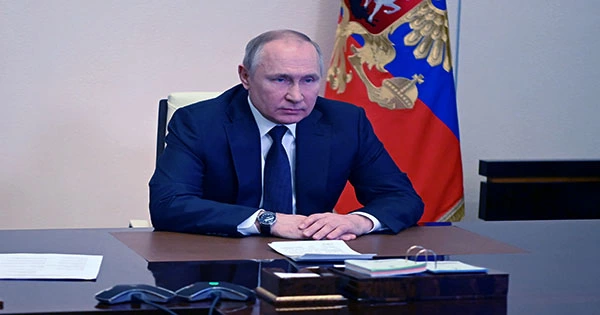Following Russia’s invasion of Ukraine earlier today, the Russian Federation’s government websites have gone down many times. At the time of writing, the Kremlin – President Vladimir Putin’s official website – the Duma – Russia’s parliament – and the Ministry of Defense’s website were all affected.
It is presently unknown what is causing the sites to go down or who is to blame. For years, the Russian government has been accused of conducting cyberattacks, some of which were carried out in advance of the invasion. They’ve also been accused of using troll farms to promote misinformation on social media sites. It’s possible that this is a reprisal attack.
Russian army attacks are widespread across Ukraine, including at the Chernobyl Nuclear Power Plant, which was the site of the 1986 accident. Russia has invaded Ukraine, hitting key cities from across the common border in Belarus. The Chernobyl Nuclear Power Plant, which is located in the abandoned city of Pripyat, is one of their objectives. That’s where the world’s worst civil nuclear tragedy occurred.
According to Ukraine’s president, Russian troops are attempting to assume control of the abandoned nuclear power station. This comes just hours after Russian President Vladimir Putin launched an invasion of Ukraine on a large scale. “Occupation forces from Russia are attempting to take control of the Chornobyl nuclear power station. In a statement, Volodymyr Zelensky said, “Our defenders are offering their life so that the tragedy of 1986 will not be repeated.” “This is a declaration of war on Europe as a whole.”
The exact number of victims and the scope of the assault are unknown at this time. This revelation will raise worries at a time when many are pushing for a reduction in Europe’s reliance on Russian fossil fuels and increased investment in renewable and nuclear power (which is considered as a low-cost and vital step toward decarbonizing the European economy). Europe is still haunted by the Chernobyl accident. Because of the Soviet Union’s shortcomings in dealing with the tragedy in 1986, 30 people died shortly after the reactor meltdown, and many more may have had their lives cut short in the decades that followed.
















